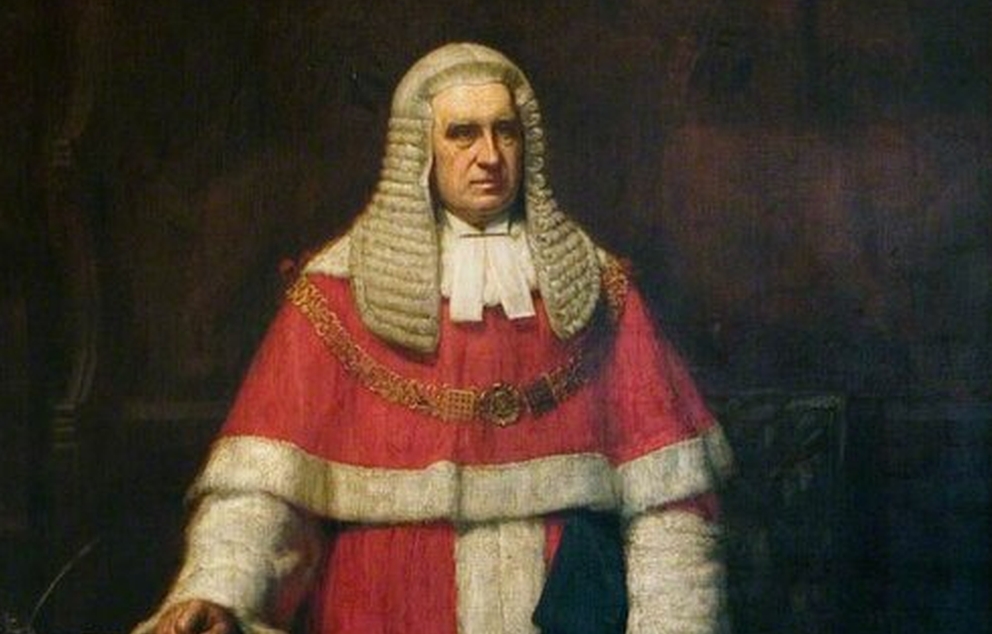בתמונה צ'רלס ארתור ראסל, הברון ראסל של קילוון, לורד צ'יף ג'סטיס של אנגליה
In this class of case it is right that the courts should jealously watch the exercise of these powers and guard against their unnecessary or unreasonable exercise to the public disadvantage. But when the court is called upon to consider the by-laws of public representative bodies clothed with the ample authority which I have described, and exercising that authority accompanied by the checks and safeguards which have been mentioned, I think the consideration of such by-laws ought to be approached from a different standpoint. They ought to be supported if possible. They ought to be, as has been said, "benevolently" interpreted, and credit ought to be given to those who have to administer them that they will be reasonably administered. This involves the introduction of no new canon of construction. But, further, looking to the character of the body legislating under the delegated authority of Parliament, to the subject-matter of such legislation, and to the nature and extent of the authority given to deal with matters which concern them and in the manner which to them shall seem meet, I think courts of justice ought to be slow to condemn as invalid any by-laws so made under such conditions on the ground of supposed unreasonableness. Notwithstanding what Cockburn C.J. said in Bailey v. Williamson – an analogous case – I do not mean to say that there may not be cases in which it would be the duty of the court to condemn by-laws made under such authority as these were made as invalid because unreasonable. But unreasonable in what sense? If, for instance, they were found to be partial and unequal in their operation as between different classes, if they were manifestly unjust, if they disclosed bad faith, if they involved such oppressive or gratuitous interference with the rights of those subject to them as could find no justification in the minds of reasonable men, the court might well say Parliament never intended to give authority to make such rules; they are unreasonable and ultra vires. But it is in this sense, and in this sense only as I conceive, that the question of unreasonableness can properly be regarded. A by-law is not unreasonable merely because particular judges may think that it goes further than is prudent or necessary or convenient, or because it is not accompanied by a qualification or an exception which some judges may think ought to be there. Surely it is not too much to say that, in matters which directly and mainly concern the people of the county who have the right to choose those whom they think best fitted to represent them in their local government bodies, such representatives may be trusted to understand their own requirements better than judges
לקוח מתוך פסק דין Kruse v Johnson [1898] 1 2 QB 91
"אבל מה משמע, 'בלתי-מתקבל על הדעת'? - אם, למשל, נתגלו כחד-צדדיות ובלתי-שוות בפעולתן כלפי סוגי אנשים שונים; אם הן בלתי-צודקות בעליל; אם הן מגלות כוונה רעה; אם יש בהן משום התערבות שיש בה משום התנכלות או התערבות ללא יסוד בזכויות של אלה הכפופים להן עד שאין למצוא הצדקה להן בעיני אנשים הגיוניים, הרי בית-המשפט יכול לומר, 'פרלמנט אף פעם לא נתכוון לכך לתת סמכות לתקנות כאלה. הן אינן מתקבלות על הדעת והן מחוץ לתחום הסמכות'. סבורני שבמובן זה, ובמובן זה בלבד, אפשר לעודד כהלכה את שאלת חוסר הסבירות בחוקי-עזר" (תרגום חלקי של השופט מאיר שמגר).
לקוח מתוך פסק דין דקה (בג"ץ 156/75), 27 בינואר 1976















Report